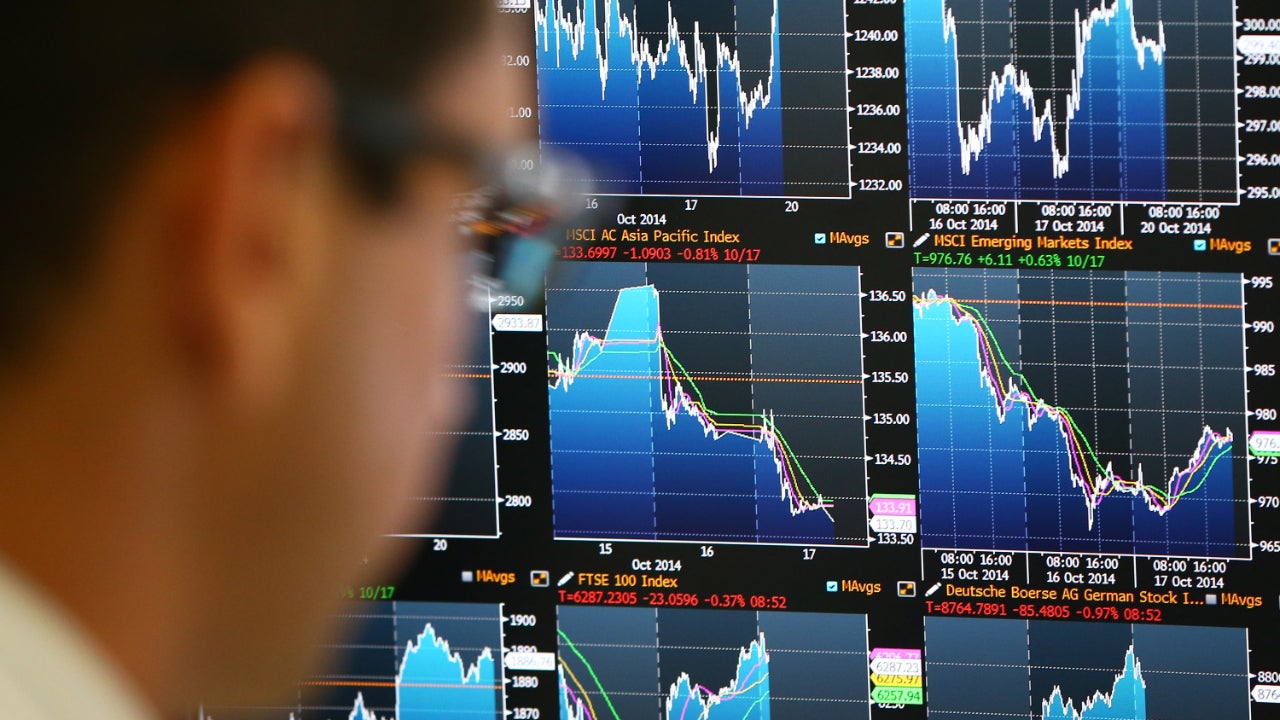What are the Magnificent 7 stocks? 7 of the market’s hottest stocks

The Magnificent 7 stocks are a group of mega-cap stocks that drive the market’s performance due to their heavy weighting in major stock indexes such as the Standard & Poor’s 500 and the Nasdaq 100. The group’s seven stocks earned their name in 2023 due to their strong performance and ability to power indexes higher seemingly without help from smaller stocks.
The Magnificent 7 includes these stocks:
- Apple (AAPL)
- Microsoft (MSFT)
- Alphabet (GOOG and GOOGL)
- Amazon (AMZN)
- Nvidia (NVDA)
- Tesla (TSLA)
- Meta Platforms (META)
The Magnificent 7 overlaps significantly with so-called FAANG stocks, with the former group all titans of tech and one of the highest-growth sectors of the economy. The promise of artificial intelligence (AI) helped the Magnificent 7 remain strong throughout 2023 and 2024 amid high interest rates that pulled down many small- and mid-cap stocks. So the Magnificent 7 stocks became something of a rebellious group of equities that refused to decline with the rest.
While analysts think AI has the potential to drive significant profits for many of these companies, some suspect the valuations on these high-tech stocks have gotten ahead of the reality of AI. AI is a game-changer, but the Magnificent 7 may be pricing in much of that value already.
To invest in the Magnificent 7, you can buy the stocks directly, buy shares in Magnificent 7 ETFs or buy an index fund.
Why are the Magnificent 7 so popular?
The Magnificent 7 are popular for a few major reasons — specifically, their operational performance, stock performance and the future prospects of AI.
- Operational performance: The mega-cap tech stocks have among the world’s strongest business models, with products used by billions of people in some cases. They have established businesses and deep financial resources, and they can continue to grow.
- Stock performance: These stocks’ performance earned them their Magnificent 7 moniker, as they pushed higher in 2023 and 2024, due in part to their association with AI. While the stocks of smaller companies fell, these big names seemed to keep rising.
- AI prospects: These companies stand to be huge beneficiaries of AI technology, whether they’re providing services based on the tech or the chips that power it.
Magnificent 7 stocks dominate major indexes
The Magnificent 7 comprise a huge portion of major indexes such as the S&P 500 and the Nasdaq 100, meaning their performance has an outsize impact on these market-cap-weighted indexes. Here’s how much of the S&P 500 they comprise, according to Slickcharts (as of July 16, 2025):
| Company | Weight in the S&P 500 |
|---|---|
| Nvidia | 7.43 percent |
| Microsoft | 6.68 percent |
| Apple | 5.58 percent |
| Amazon | 4.22 percent |
| Alphabet | 3.96 percent |
| Meta Platforms | 3.15 percent |
| Tesla | 1.84 percent |
Add up those components, and these seven stocks account for about 32 percent of the S&P 500’s performance. Meanwhile, the S&P 500’s other 490-some stocks deliver the remaining 68 percent. As great as this weighting is, it’s even more lopsided in the tech-heavy Nasdaq 100:
| Company | Weight in the Nasdaq 100 |
|---|---|
| Nvidia | 14.16 percent |
| Microsoft | 12.73 percent |
| Apple | 10.64 percent |
| Amazon | 8.04 percent |
| Alphabet | 7.54 percent |
| Meta Platforms | 6 percent |
| Tesla | 3.51 percent |
Total those all up, and the Magnificent 7 stocks represent about 62 percent of the Nasdaq 100’s performance. This weighting has risen significantly in recent months and could lead to a special rebalancing of the index, as it did in 2023.
Each time you purchase mutual funds or exchange-traded funds based on these indexes, you’re buying a similarly sized stake, albeit indirectly, in these Magnificent 7 stocks. Even if you’re buying funds based on other indexes, these seven names often dominate those funds, too. For example, the best index funds have significant weightings in the Magnificent 7.
Bottom line
The Magnificent 7 stocks have been a huge driver of the performance of major stock indexes and will likely continue to be for a long while. If you’re thinking about buying index funds, you should understand how much impact these heavy hitters have on an index’s performance.
Editorial Disclaimer: All investors are advised to conduct their own independent research into investment strategies before making an investment decision. In addition, investors are advised that past investment product performance is no guarantee of future price appreciation.
Why we ask for feedback Your feedback helps us improve our content and services. It takes less than a minute to complete.
Your responses are anonymous and will only be used for improving our website.






